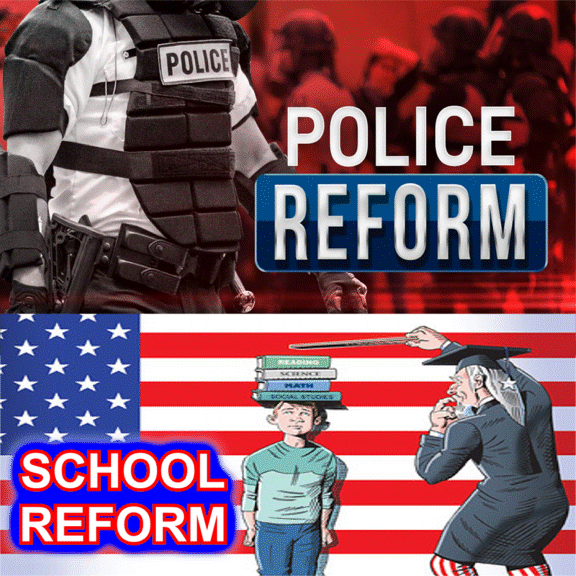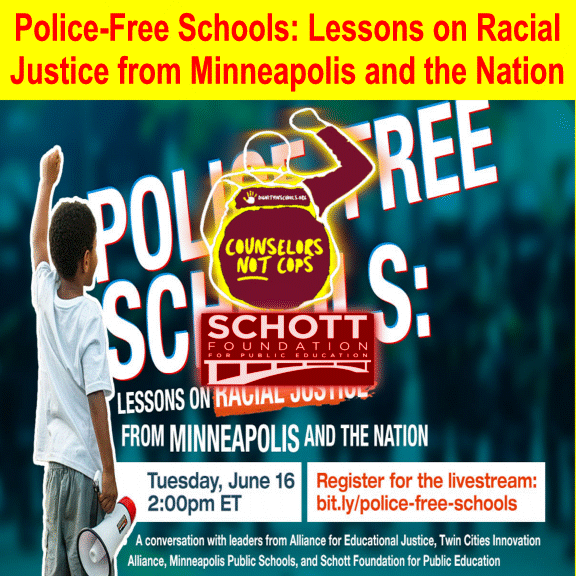Police Reform and School Reform (Part 1)
Amid widespread protests against police violence against African Americans, calls for reform from ending neck restraints to “defunding” police departments have monopolized TV newscasts and newspaper headlines. Social media traffic prompted by smartphone videos of incidents between police officers and blacks have gone viral. State and city officials across the nation are generating to-do lists of reforms aimed at solving the problem of police officers using lethal force to arrest minority suspects (see here and here).
White people over the age of 18 might be surprised that such cries for police reform have occurred before. But their grandparents wouldn’t.
The decade between 1965-1975 when urban “riots” (or “rebellions,” depending upon your political stance) occurred in Los Angeles, Chicago, Washington, D.C., Detroit, Newark, and other cities killing both blacks and whites including police officers. President Lyndon Johnson appointed the governor of Illinois, Otto Kerner, to chair a commission to investigate the racial violence. The Kerner Commission’s report (1968) condemned white racism in housing, employment, and criminal justice while offering many recommendations for police reform (see here and here).
Subsequent calls for reforming police departments to reduce excessive force against people of color have occurred after killings of black men such as Eric Garner in New York City and Michael Brown in Ferguson (MO) in 2014. Then consider Minneapolis police officers have shot dead Jamar Clark (2015) and CONTINUE READING: Police Reform and School Reform (Part 1) | Larry Cuban on School Reform and Classroom Practice


































